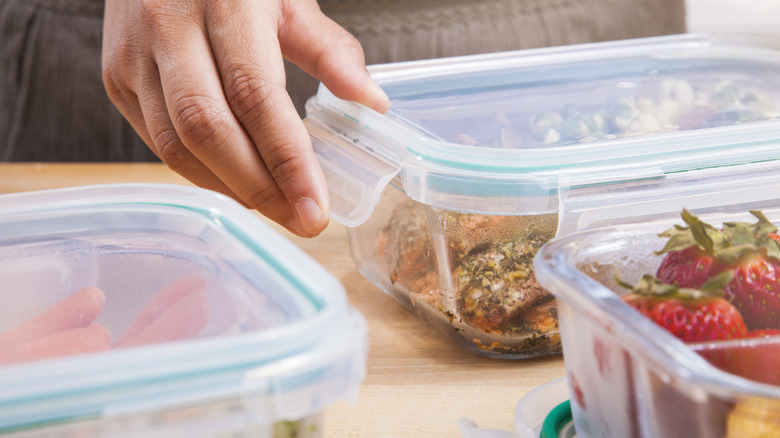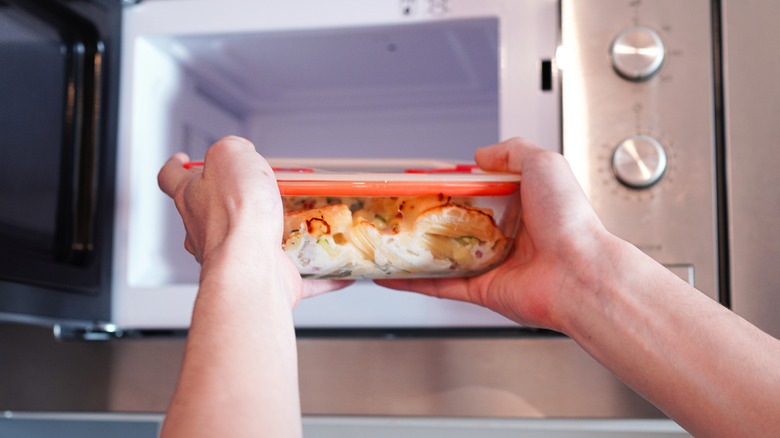Why People Are Making The Switch To Glass Tupperware
We may receive a commission on purchases made from links.
It's a plastic world, and we're all just living in it. This information isn't new to anyone, since concerns about plastic pollution have been raised by researchers as far back as the 1960s — even though the term microplastic wasn't introduced until 2004 when scientists finally started looking into the potential health risks to humans. Micro and nano plastics are found everywhere from the food we consume to the water we drink. Both types of plastic are so tiny, they are smaller than a strand of human hair and even hard to see under a standard microscope. These plastics are in our bodies, and while it is almost impossible for anyone to completely avoid consuming them, you can still try and minimize your exposure.
Despite all the information available, we have only made a dent in our dependency on plastic containers. Even with safer plastic food storage alternatives, we are still seeing plastic packaging everywhere from grocery stores to restaurants. We are all aware that Bisphenol A (BPA) and phthalates found in plastic are bad for us and can lead to health issues such as an increased risk of heart failure and hormone-sensitive cancer diagnoses like breast, thyroid and ovarian. With the major health concerns that come from ingesting plastic, it is no wonder people are finally fed up and are making the switch to glass Tupperware for good. It seems like, if you haven't already, it's time to ditch plastic kitchen items for safer alternatives.
Benefits of switching to glass Tupperware
There are certain obvious ways to avoid the risks of microplastics, like investing in a good insulated stainless steel water bottle and getting an American National Standards Institute certified water filter for your home. Even if you're not yet noticing signs you should get rid of your current set of Tupperware, opting for glass can help you avoid plastic exposure. Despite labels that say these containers are dishwasher or microwave safe, there are still concerns about how safe it is for you to use when exposed to heat. And beyond just the health risks that are associated with plastic, there are also numerous benefits to making the switch to glass Tupperware.
Glass is more durable and has the potential to hold up indefinitely, especially if cared for properly. They are sturdier, more leak-proof, and also resistant to the staining and discoloration that often happens to plastic (we're talking to you, pasta sauce). It is also a more environmentally friendly and sustainable option, requiring less waste that ultimately ends up in landfills. They offer all the same benefits of plastic, like meal prepping and freezing your favorite leftovers. And if you invest in really good Tupperware, like these glass food storage containers, you can even put your food straight in the oven. With all these benefits, it seems like a no-brainer to finally switch to glass Tupperware, because with all the scary dangers that are lurking around your home, your food storage containers shouldn't have to be one of them.

